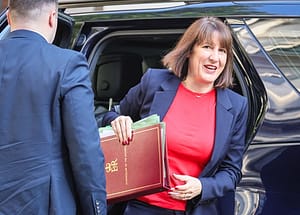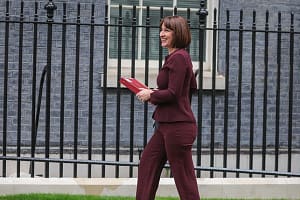The Chancellor Rishi Sunak set out plans on Thursday to take the “sting out” of the £693 rise on household energy bills.
The Chancellor announced that all households will be given a loan of £200 of their energy bills from October, but this will have to be paid back over five years.
Sunak announced a £3.6bn measure that will not have to be paid back on bills as from April homes who are in council tax bands A to D will get a rebate of £150.
However Sunak was met some anger as Tory MP Stephen McPartland said the policy “lacks ambition” which does present a missed opportunity to “support famlies courageously.”
Conservative MP Peter Bone suggest that Sunak is deploying left wing response instead of a Tory one, and asked if he is “Conservative approach or a socialist approach?”
Bone said, “Conservatives believe in holding taxes down and putting more money in people’s pockets so they can decide how to spend it.
“Socialists believe in raising taxes and then choosing to give it back in the form of discounts and rebates to selected people the Government think need it.”
The Chancellor replied, “I also believe that it is a Conservative approach to be responsible with this nation’s public finances.”
Tory MP Tom Tugendhat, the chair of the Commons Foreign Affairs Committee pleaded with the Chancellor for lower taxes.
Tugendhat tweeted, “April showers won’t be cheap. The sudden surge in the cost of heating will hit families across the country just as the new NI tax kicks in.
“People need control of their lives by having control of their wallets, that’s why lower taxes matter for every home.”
The government has been urged by many MPs in the Commons to delay or even cut the 1.25 percentage point to increase National Insurance in April.
Tory MP Esther McVey, who is a former Cabinet Minister, questioned Sunak if “middle Britain” will be supported “as well as those on the very lowest of incomes.”
Tory MPs have been pressuring the government for a VAT cut on energy bills, but the Chancellor argued it would “disproportionately benefit wealthier households” which will become a “permanent government subsidy on everyone’s bills.”
Today millions of families are now facing soaring fuel bills as the energy regulator Ofgem have increased their price cap by 54%.
Johnson promised that household bills will be cheaper after Brexit and said this several time during the 2016 referendum campaign.
Brits who voted for Brexit argued that energy bills would be cut by around £2bn a year as it would allow the government to scrap the VAT on fuel bills.





Leave a Comment